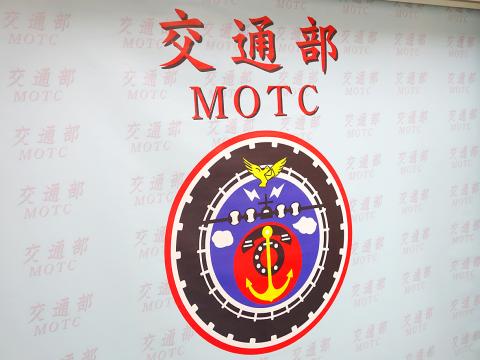The government is considering including more countries in its visa-waiver program to attract more tourists after China last week suspended a program that had allowed individual tourists from 47 Chinese cities to travel to Taiwan, Minister of Transportation and Communications Lin Chia-lung (林佳龍) said yesterday.
Aside from suspending visits by independent travelers, media reports said Beijing is planning to reduce the number of Chinese tour groups starting on Sept. 1.
They also said that China would expand the restrictions to include Chinese tourists traveling to Penghu, Kinmen and Lienchiang (Matsu) — also known as the “small three links” — between the two nations, but Taiwanese and Chinese authorities denied the reports.

Photo: Cheng Wei-chi, Taipei Times
“China is attempting to interfere in our elections in January by suspending visits by Chinese tourists before then,” Lin said.
“This is not the first time and it would not be the last time,” he said.
“Beijing did not do this only to Taiwan. It also prevented Chinese tourists from visiting South Korea when the US deployed the Terminal High Altitude Area Defense anti-ballistic missile system there in 2017. It had also restricted Chinese tourists from traveling to Japan,” he said.
This is how an autocratic state manipulates diplomacy by holding its own people hostage, he added.
Taiwanese welcome Chinese tourists, but Taiwan is not dependent on their visits to sustain its tourism industry’s long-term development, he added.
The repercussions caused by Beijing’s frequent use of Chinese tourists for its political purposes have gradually diminished, the minister said.
In 2014, 40 percent of the nation’s international visitors came from China, but the ratio declined to 24 percent last year, he added.
This is a diverse and healthy development for the nation’s market for international travelers, he said.
“The key is that we have already prepared a counterstrategy. In addition to a plan to allocate NT$3.6 billion [US$113.8 million] to boost domestic tourism, which is expected to generate tourism benefits topping NT$26 billion,” he said.
“We are also planning to attract more international tourists by either further simplifying the visa application process for visitors from Southeast Asian countries or including more countries in the visa-waiver program,” he said.
The government is reviewing certain countries covered by the New Southbound Policy, including Singapore, Vietnam and Indonesia, Lin said.

A Ministry of Foreign Affairs official yesterday said that a delegation that visited China for an APEC meeting did not receive any kind of treatment that downgraded Taiwan’s sovereignty. Department of International Organizations Director-General Jonathan Sun (孫儉元) said that he and a group of ministry officials visited Shenzhen, China, to attend the APEC Informal Senior Officials’ Meeting last month. The trip went “smoothly and safely” for all Taiwanese delegates, as the Chinese side arranged the trip in accordance with long-standing practices, Sun said at the ministry’s weekly briefing. The Taiwanese group did not encounter any political suppression, he said. Sun made the remarks when

The Taiwanese passport ranked 33rd in a global listing of passports by convenience this month, rising three places from last month’s ranking, but matching its position in January last year. The Henley Passport Index, an international ranking of passports by the number of designations its holder can travel to without a visa, showed that the Taiwan passport enables holders to travel to 139 countries and territories without a visa. Singapore’s passport was ranked the most powerful with visa-free access to 192 destinations out of 227, according to the index published on Tuesday by UK-based migration investment consultancy firm Henley and Partners. Japan’s and

BROAD AGREEMENT: The two are nearing a trade deal to reduce Taiwan’s tariff to 15% and a commitment for TSMC to build five more fabs, a ‘New York Times’ report said Taiwan and the US have reached a broad consensus on a trade deal, the Executive Yuan’s Office of Trade Negotiations said yesterday, after a report said that Washington is set to reduce Taiwan’s tariff rate to 15 percent. The New York Times on Monday reported that the two nations are nearing a trade deal to reduce Taiwan’s tariff rate to 15 percent and commit Taiwan Semiconductor Manufacturing Co (TSMC, 台積電) to building at least five more facilities in the US. “The agreement, which has been under negotiation for months, is being legally scrubbed and could be announced this month,” the paper said,

Japan and the Philippines yesterday signed a defense pact that would allow the tax-free provision of ammunition, fuel, food and other necessities when their forces stage joint training to boost deterrence against China’s growing aggression in the region and to bolster their preparation for natural disasters. Japan has faced increasing political, trade and security tensions with China, which was angered by Japanese Prime Minister Sanae Takaichi’s remark that a Chinese attack on Taiwan would be a survival-threatening situation for Japan, triggering a military response. Japan and the Philippines have also had separate territorial conflicts with Beijing in the East and South China